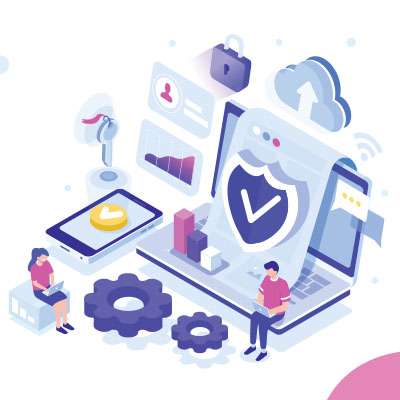Macro Systems Blog
Digital storage has erupted, in no uncertain terms, over the last few decades. While hard disk drives (HDDs) were the predominant storage format for most of that time, today’s faster and hardier solid-state drives (or SSDs) are becoming more affordable and popular.
That being said, there are still plenty of HDDs out there, all far more prone to breaking than their more advanced counterparts. So, how can you tell when a hard drive failure is pending?
The concept of a four-day workweek has started to gain significant traction among businesses of all sizes. However, there's a subtle distinction between the traditional four-day workweek and the compressed workweek. Listed below is an examination of the compressed workweek and what it means for employees.
We have frequently espoused the benefits of data backups, referring to how imperative they are should your business experience a disaster at any scale. That being said, there is always the concern that your backups could also be altered negatively. This is one reason that immutable backups exist.
Let’s take a few moments to examine the concept of an immutable backup and its benefits.
Businesses have to deal with a variety of different types of problems, but they often don’t see many of the problems that come from within their company. Whether this comes from hackers, disgruntled customers, or unreliable vendors, every business leader constantly deals with some type of issue. Alas, sometimes these problems can come from inside your organization. Listed below is a look at two employee issues that can potentially cause major headaches for business owners.
If you use Gmail, you might have noticed the different inbox categories available. This makes it much easier to reach “inbox zero.” With the “priority inbox,” you can achieve this feat without so much as breaking a sweat—unless you count sweat from how much you’re laughing at how easy this tip is to pull off.
Managing servers can be a challenging task for small and medium-sized businesses (SMBs). Despite being essential to your operations, servers are complex technologies that, if not managed properly, can lead to wasted time, energy, and resources. Listed below are the vital functions of server management and how to maximize your current resources.
Remote work has been incredibly useful over the past few years despite many employers having various concerns about its implementation. While these concerns vary, one prevalent one is how remote operations impact cybersecurity.
If you’re utilizing remote operations to any degree and aren’t concerned about cybersecurity, you must adjust this mindset and correct your approach.
Projects are a big part of the small business model. Whether they are projects to enhance organizational efficiency or productivity or projects that are completed for customers, strong project management is extremely imperative. Scope creep happens when a project becomes less efficient because the demands of the project keep changing. Listed below: a definition of scope creep and how to prevent it from being a problem for your business.
Data breaches can cripple organizations and can come from a lot of different directions. They can be the result of phishing attacks where your staff unwittingly gives hackers access to your business’ resources. It can come from a brute force attack where hackers use innovative tools to break into your network. It can even be the work of disgruntled employees who use their access to steal company data. Listed below are the top three things you can do to keep your business from being hacked.
With mobile devices being such a large part of doing business, it’s imperative that your business has a plan to manage them. Many times this comes with a lot of hand-wringing. One of the biggest issues is whether or not the business invests in their employee mobility or if they simply demand that they gain use of employee-owned devices. In today’s blog we’ll go through the mobile management strategies of Bring Your Own Device (BYOD) and Corporate Owned, Personally Enabled (COPE).
The Internet of Things (IoT) is a term you’ve probably heard by now but may not completely understand; that’s normal, as there are a lot of things that could be labeled under the IoT. This month, we thought we would go through some ways the average business can use the Internet of Things to its advantage.
It should come as no surprise that a modern business’ information technology and security precautions are frequently tied closely together—and wisely so. Not only can today’s technology greatly augment the security a business can defend itself with, but advanced security is needed to protect the critical IT that modern businesses rely on to function.
This makes it imperative that these two aspects of your business work together, so let’s go over some ways to ensure they can do so optimally.























